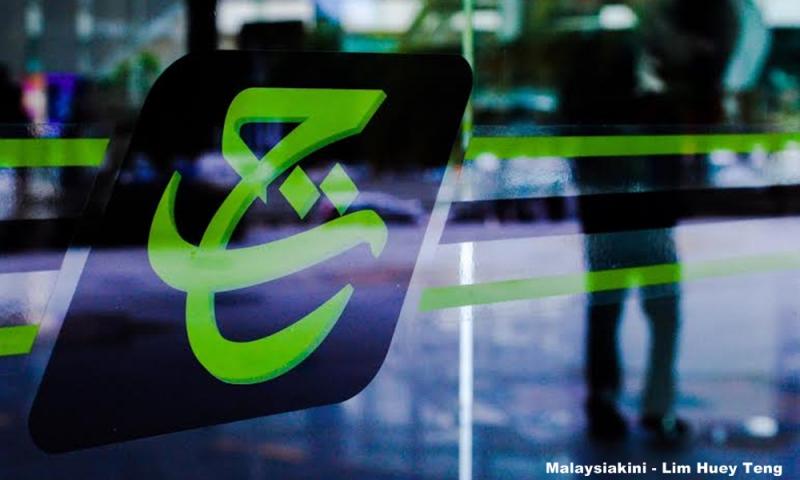Lembaga Tabung Haji effectively paid dividends (hibah) using depositor's savings, according to a financial position review for 2017 by independent audit firm PriceWaterhouseCoopers (PwC).
On paper, however, the pilgrimage fund structured two deals to give the impression that these dividends were coming from profits, according to the financial position review which was tabled in the Dewan Rakyat today.
For the first deal, Tabung Haji's shares in Bank Islam Malaysia Bhd (BIMB) were sold so as to show profit before being repurchased, which also incurred brokerage fees.
For the second, its subsidiary companies declared high dividends although the amount was never fully paid.
"Although the above transactions appear commercial, we understand that the intention was to enable Tabung Haji to report higher profits for the purpose of distribution to the depositors.
"This would only lead to the hibah being funded out of the cash from the depositor's savings funds, and not the profits declared," PWC said in the financial position review.
In the BIMB deal, Tabung Haji sold RM2.551 billion in shares to generate a gain of RM553 million.
However, in the same year, it spent RM2.688 billion buying back the same shares.
"Effectively, the sale of the shares in BIMB did not result in cash benefit to Tabung Haji, other than gain at TH level, which increased the profits of Tabung Haji for the financial year 2017 by RM553 million," said the financial position review.
Upside value
PwC said it had also interviewed the Tabung Haji's equity traders, who admitted that the sale and repurchase of BIMB shares were only to show profit temporarily, so as to justify Tabung Haji's dividend payments.
"Based on our discussion with the equity trader of Tabung Haji, he confirmed that the sale and repurchase of the BIMB shares were done in order to realise the upside value of BIMB shares, in order to recognise the profits needed to meet the bonus distribution target for 2017," read the document.
PwC added that the sale and repurchase of the share were not disclosed in Tabung Haji's financial statement, as required under the financial reporting standards.
It added that the fund used similar modus operandi in 2016 to give the impression of profit.
With regard to dividends declared by Tabung Haji's subsidiaries, it said RM510 million was declared by the companies, but RM222 million remains unpaid.
"We are not able to confirm whether these dividends (from subsidiaries to Tabung Haji) can be settled by Dec 31, 2018," it said.
Last year, Tabung Haji declared dividends of 4.5 percent and a bonus of 1.75 percent.
Earlier today, Minister in the Prime Minister's Department Mujahid Yusof Rawa, who is in charge of Islamic Affairs, confirmed that Tabung Haji had been in deficit since 2014 but continued to issue dividends, in violation of the Tabung Haji Act 1995.
Muhajid said the government had approved a regularisation plan where a special purpose vehicle will take over Tabung Haji's underperforming companies and revive them.
Furthermore, he said Bank Negara Malaysia will now have oversight over Tabung Haji's deposit-taking activities.
Bank Negara had previously warned Tabung Haji about its financial position, but it was downplayed by its leadership at the time.
RELATED REPORTS
Umno veep backs call for RCI into Tabung Haji's finances
Tabung Haji to transfer RM19.9b assets including 1MDB land to SPV
Najib warns 'bank run' can further destabilise Tabung Haji
Azeez insists on Tabung Haji surplus but doesn't reveal creative accounting
Anwar: Good move to put Tabung Haji under Bank Negara supervision
PAS: Tabung Haji's deficit could be Harapan 'playing on figures'
Mujahid confirms Tabung Haji’s RM4.1b deficit, Bank Negara to step in





